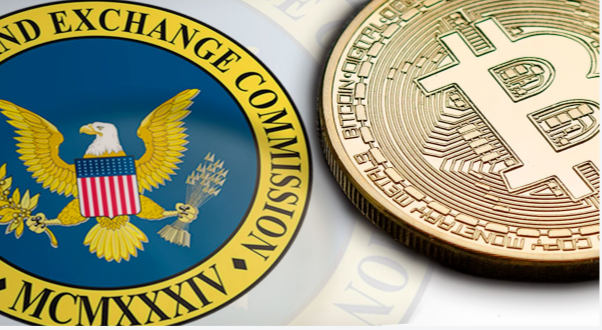Introduction: Zhao Changpeng (CZ), the founder of Binance, was arrested and pleaded guilty to money laundering and violating the US Bank Secrecy Act, marking a significant turning point for the cryptocurrency industry and highlighting the regulatory challenges and trends it faces globally.
I. Background of the Event
On November 22, 2023, Zhao Changpeng pleaded guilty in the US Federal Court in Seattle to money laundering and other financial crimes. Under the plea agreement, Zhao Changpeng agreed to pay a fine of $50 million and resign as CEO of Binance. Binance also agreed to pay a $4.3 billion fine and compensation and to be supervised by a government-appointed monitor.
II. Regulatory Challenges and Challenges
1. Uncertainty of Laws and Regulations
- Multiple regulatory agencies: In the United States, multiple regulatory agencies such as the Securities and Exchange Commission (SEC), the Commodity Futures Trading Commission (CFTC), and the Financial Crimes Enforcement Network (FinCEN) regulate the cryptocurrency industry, leading to confusion and inconsistency in regulatory standards.
- Global regulatory differences: Regulatory policies in different countries and regions differ significantly, making it difficult for cross-border cryptocurrency exchanges to fully comply. For example, there are significant differences in regulatory requirements between the United States and Europe.
2. Conflict between Technology and Regulations
- Anonymity and privacy protection: The anonymity and privacy protection features of cryptocurrencies conflict with anti-money laundering (AML) and know your customer (KYC) regulations. Binance was charged with failing to effectively implement anti-money laundering measures, indicating a conflict between the characteristics of the technology and existing laws and regulations.
- Rapid technological development: The rapid development of cryptocurrency technology and applications makes it difficult for regulatory agencies to keep pace, leading to regulatory lag.
3. Resistance and Evasion by Market Participants
- Regulatory arbitrage: Some cryptocurrency companies evade strict regulation by moving their operations between different jurisdictions. This behavior not only increases the difficulty of regulation but may also lead to vulnerabilities in the global financial system.
- Market distrust: Frequent regulatory actions and fines may cause investors to lose confidence in the cryptocurrency market, affecting market stability.
III. Regulatory Trends
1. Improvement of Regulatory Framework
- Clear legal definitions: Future regulatory trends will include clear legal definitions and classifications of cryptocurrencies. For example, the US CFTC and SEC are discussing categorizing some cryptocurrencies as commodities or securities for better regulation.
- International cooperation: To address cross-border transactions and evasion, international regulatory cooperation will be strengthened. International organizations such as the G20 have begun discussing a global cryptocurrency regulatory framework.
2. Technology-Driven Compliance Measures
- Blockchain monitoring technology: Regulatory agencies will increasingly use blockchain analysis tools to monitor and track suspicious transactions. These tools can help identify and prevent money laundering and other illegal activities.
- Automated compliance systems: Cryptocurrency exchanges will be required to adopt more advanced automated compliance systems to monitor transactions in real time and ensure regulatory compliance.
3. Stricter Penalties
- High fines: Violations will face higher fines and penalties to increase the cost of non-compliance. The high fines imposed on Zhao Changpeng and Binance are a typical example.
- Criminal liability: In the future, more cryptocurrency company executives may face criminal charges and imprisonment for failing to fulfill compliance obligations.
IV. Market Impact
1. Market Confidence Fluctuation
The arrest of Zhao Changpeng and the legal challenges faced by Binance have had a certain impact on market confidence, causing panic and uncertainty among investors. Prices of cryptocurrencies such as Bitcoin have fluctuated.
2. Industry Self-Adjustment
Cryptocurrency trading platforms may pay more attention to compliance to avoid similar legal risks. Regulated platforms will operate more cautiously, which may lead to a shift of users from loss to return.
V. Future Prospects
1. Balancing Compliance and Innovation
The cryptocurrency market needs to find a balance between compliance and innovation. Regulatory agencies should support the development of new technologies while protecting investors and maintaining market order.
2. Industry Standardization
Binance's compliance measures and cooperation with law enforcement agencies may set standards for the entire industry. Other cryptocurrency companies may emulate their practices, promoting industry self-regulation and standardization.
In summary, the arrest of Zhao Changpeng not only reveals the regulatory challenges facing the cryptocurrency market but also foreshadows future regulatory trends. The cryptocurrency industry needs to seek a balance between innovation and development in a strict regulatory environment and build trust and stability through compliance efforts. As regulatory efforts to regulate cryptocurrencies intensify globally, industry practitioners must pay more attention to compliance and risk management to achieve sustainable and healthy development.

Image Source: Internet
免责声明:本文章仅代表作者个人观点,不代表本平台的立场和观点。本文章仅供信息分享,不构成对任何人的任何投资建议。用户与作者之间的任何争议,与本平台无关。如网页中刊载的文章或图片涉及侵权,请提供相关的权利证明和身份证明发送邮件到support@aicoin.com,本平台相关工作人员将会进行核查。




